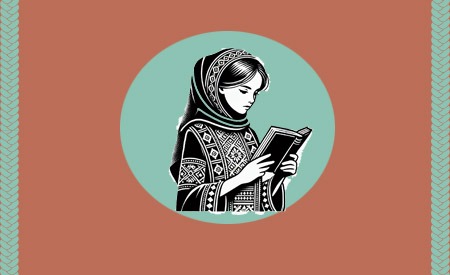Written by: Walaa Al-Saadi
I am Walaa Al-Saadi, a student in Communication and Audio-Visual Production at the Lebanese American University in Beirut. Recently, I spent a semester at Virginia Commonwealth University in the United States. My involvement in the arts and culture sector began in 2022 through my volunteer work at the Museum of Modern and Contemporary Art in Lebanon.
I also contributed as a content creator on the “Al-Yamaniya” platform, which is dedicated to supporting Yemeni female artists. Additionally, I participated in the “BinCast” podcast, which explores the cultural heritage of Yemen. Due to my passion for art, history, music, culture, and research, I launched an initiative focused on the digitization and archiving of cultural materials called “Yamresh,” with the first project under this initiative starting in 2023.
Through the “Voices and Rhythms Lost” program, I had the opportunity to produce a podcast episode in collaboration with my colleague, Angham Adnan. We focused on documenting the story of Akazieb Yaseen, a Yemeni singer from Aden whose life and career remain largely undocumented. Yaseen’s story is unique not only for her talent but also for her resilience in facing societal challenges. In the 1980s, Yaseen was a prominent member of a vocal group in Aden, which gave her the opportunity to participate in various events and gain recognition. Later, she transitioned to singing at weddings after the decline of the vocal group post-1990. However, due to illness, she was forced to step back from her career. Despite her achievements and contributions, very little information is available about her life today.
While researching her journey, we encountered a surprising lack of documentation, especially regarding her experience with the singing group and choir. Despite her extensive travel, song recordings, and collaborations with prominent Yemeni musicians, her digital footprint is minimal. This episode became a crucial platform not only to share her story as an artist but also to reflect on the broader challenges faced by Yemeni women in the arts. Yaseen’s journey represents personal ambition and cultural richness in a time when Yemeni society was more inclusive and supportive, in contrast to the judgments and difficulties faced by women today.
Working with Angham to document part of Akadhib’s story was a rich experience. She generously shared her memories of her musical journey and her experiences as a woman striving to achieve an artistic life. Through our conversations, I learned to appreciate her unwavering commitment to music and her decision to follow her passion. Yemeni female singers, like Akadhib, face social stigma and racial biases, largely due to societal expectations surrounding women’s roles. Yaseen’s refusal to succumb to these pressures is a courageous story that deserves to be told.
Producing this podcast episode involved many challenges. The research and technical production management, especially with limited access to advanced equipment, presented a steep learning curve. Additionally, the time constraints added to the difficulties, as I had to take a break from working on the project due to unforeseen circumstances, which forced me to handle editing and post-production in less time than expected. It was also necessary to be cautious when discussing female artists in Yemen, as we aimed to present their stories with respect and avoid any misunderstandings. Despite these challenges, the support and training I received in podcast production and storytelling helped me overcome them.




